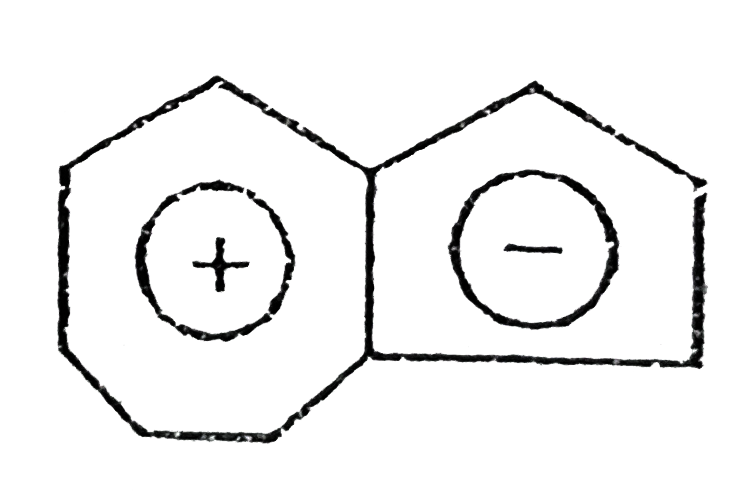Consider the fallowing statement :
(I) CH3OC⊕H2 is more stable that CH3CH⊕2
(II) Me3C⊕ is more stable than CH3CH2C⊕H2
(III) CH2=CH−C⊕H2 is more stable than CH3CH2C⊕H2
(IV) CH2=C⊕H is more stable thn CH3C⊕H2 of these statement:
I and II are correct
III and IV are correct
I,II and III are correct
All are correct
The correct Answer is:C
To analyze the stability of the given cations, let's evaluate each statement one by one.
Step 1: Evaluate Statement I
Statement I: CH3OC⊕H2 is more stable than CH3CH2⊕.
- The cation CH3OC⊕H2 has an oxygen atom with a lone pair of electrons. This lone pair can participate in resonance, stabilizing the positive charge by delocalization.
- In contrast, CH3CH2⊕ is a primary carbocation, which lacks resonance stabilization and is less stable.
Conclusion: Statement I is correct.
Step 2: Evaluate Statement II
Statement II: Me3C⊕ is more stable than CH3CH2C⊕H2.
- Me3C⊕ (tertiary carbocation) has three methyl groups that can donate electron density through the +I effect, increasing its stability.
- CH3CH2C⊕H2 is a primary carbocation, which is less stable due to the lack of significant electron-donating groups.
Conclusion: Statement II is correct.
Step 3: Evaluate Statement III
Statement III: CH2=CH−C⊕H2 is more stable than CH3CH2C⊕H2.
- The cation CH2=CH−C⊕H2 is an allylic cation, which can be stabilized by resonance. The positive charge can be delocalized between the adjacent double bond and the cation.
- CH3CH2C⊕H2 is a primary carbocation, which is less stable and lacks resonance stabilization.
Conclusion: Statement III is correct.
Step 4: Evaluate Statement IV
Statement IV: CH2=C⊕H is more stable than CH3C⊕H2.
- CH2=C⊕H is a vinylic cation, which is highly unstable because the positive charge is on a carbon that is part of a double bond.
- CH3C⊕H2 is a more stable secondary carbocation, as it has more hyperconjugation and is not involved in a double bond.
Conclusion: Statement IV is incorrect.
Final Conclusion
The correct statements are I, II, and III. Therefore, the answer is that statements I, II, and III are correct.
---
Statement I: CH3OC⊕H2 is more stable than CH3CH2⊕.
- In contrast, CH3CH2⊕ is a primary carbocation, which lacks resonance stabilization and is less stable.
Conclusion: Statement I is correct.
Statement II: Me3C⊕ is more stable than CH3CH2C⊕H2.
- CH3CH2C⊕H2 is a primary carbocation, which is less stable due to the lack of significant electron-donating groups.
Statement III: CH2=CH−C⊕H2 is more stable than CH3CH2C⊕H2.
- CH3CH2C⊕H2 is a primary carbocation, which is less stable and lacks resonance stabilization.
Statement IV: CH2=C⊕H is more stable than CH3C⊕H2.
- CH3C⊕H2 is a more stable secondary carbocation, as it has more hyperconjugation and is not involved in a double bond.
The correct statements are I, II, and III. Therefore, the answer is that statements I, II, and III are correct.
Similar Questions
CH3COO− ion is more stable than C2H5O− ion. Assign reason.
View SolutionExplain why (CH3)3+Cis more stable than CH3+CH2 and CH3 is the least stable cation
View SolutionCH3COO− (acetate ion) is more stable than C2H5O− (ethoxide ion). Explain.
View SolutionWhich is expected to be more stable,
(I) O2NCH2CH2O− or
(II) CH3CH2O− any why ?
View SolutionWhich of the two: O2NCH2CH2O– or CH3CH2O– is expected to be more stable and why ?
View SolutionWhich is expected to be more stable : O2NCH2CH2O− or CH3CH2O− and why ?
View SolutionA : C2H5−+CH—C2H5 . is more stable than CH3−+CH−CH3
R : Positive inductive effect of C2H5 group is less than CH3—group.
View SolutionStatement-1: CH3−O−CH2 is more stable than O=O∣N−CH2
Statement-2: is antiaromatic molecule
is antiaromatic molecule
Statement-3: Phenoxide is more stable than ethoxide
View SolutionDirection (Q. Nos. 19-20) Consider the following four compounds
(I) CH3−CH2−CH2−CH2−O∣∣C−H
(II) CH3−CH2−CH2−O∣∣C−CH3
(III) CH3−CH2−C∣∣O−CH2−CH3
(IV) CH3−CH∣CH3−CH2−C∣∣O−H
Which of the following pairs are position isomers ?
View SolutionDirection (Q. Nos. 19-20) Consider the following four compounds
(I) CH3−CH2−CH2−CH2−O∣∣C−H
(II) CH3−CH2−CH2−O∣∣C−CH3
(III) CH3−CH2−C∣∣O−CH2−CH3
(IV) CH3−CH∣CH3−CH2−C∣∣O−H
Which of the following pairs are not functional group isomers ?
View Solution
